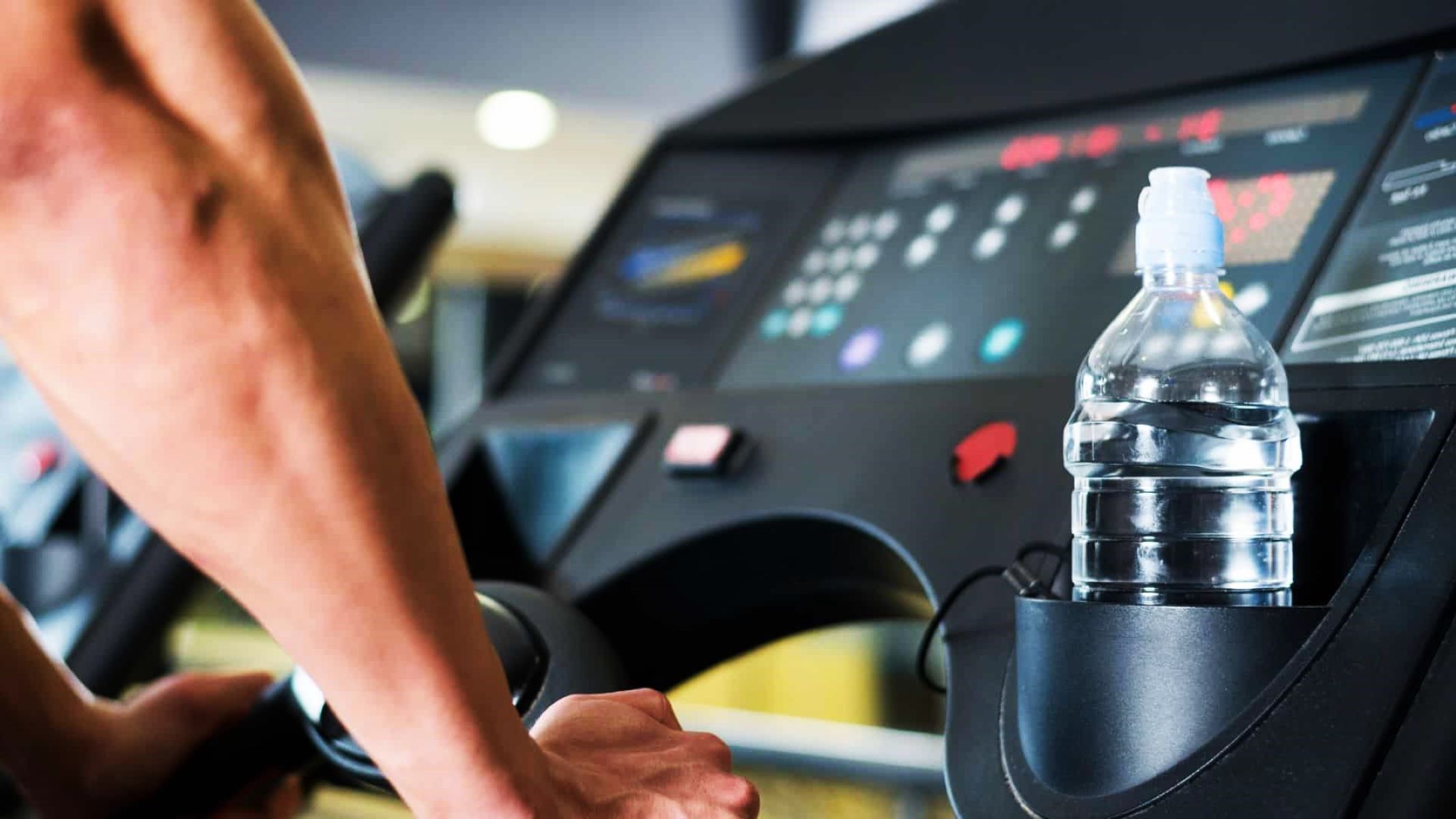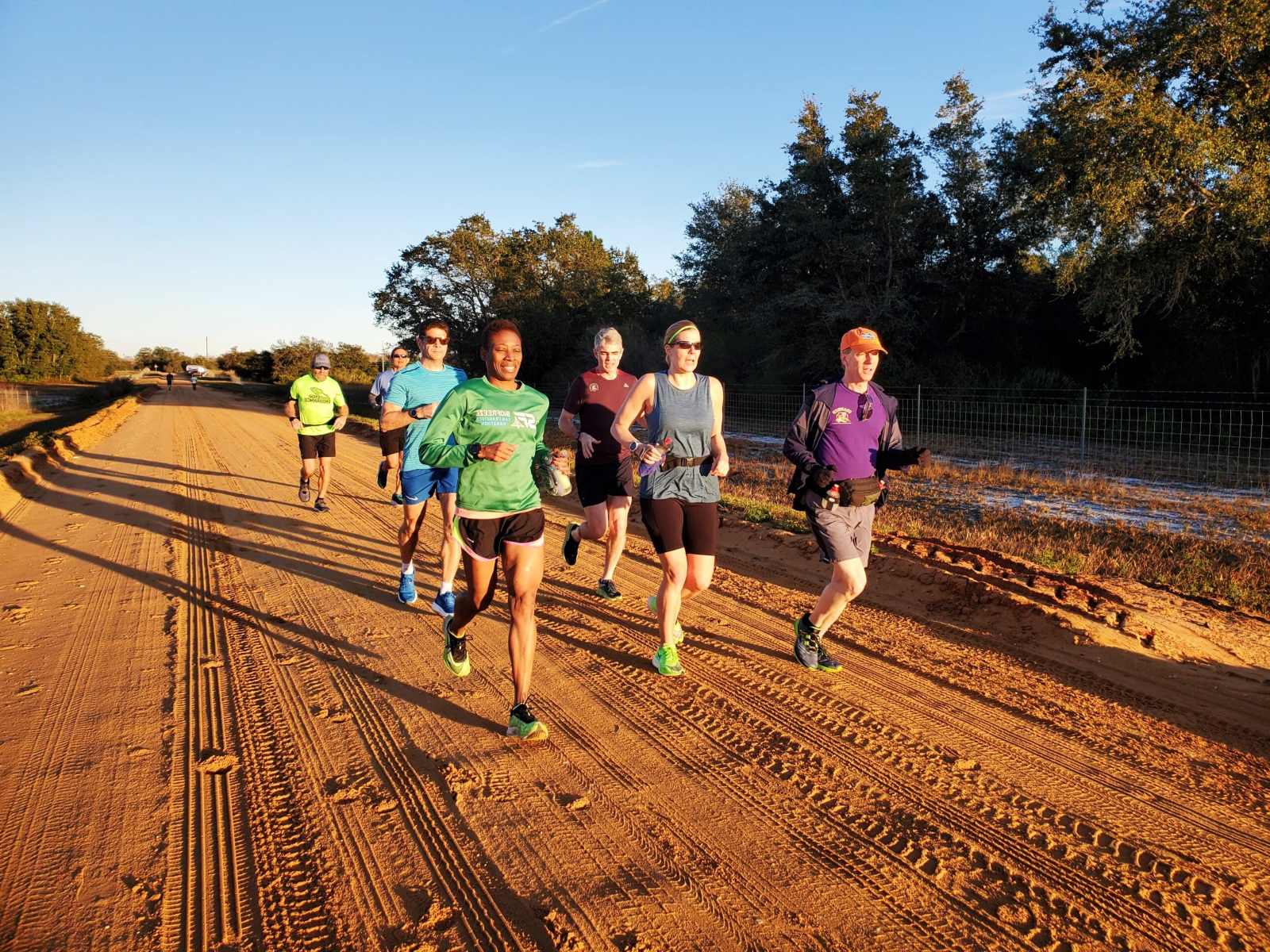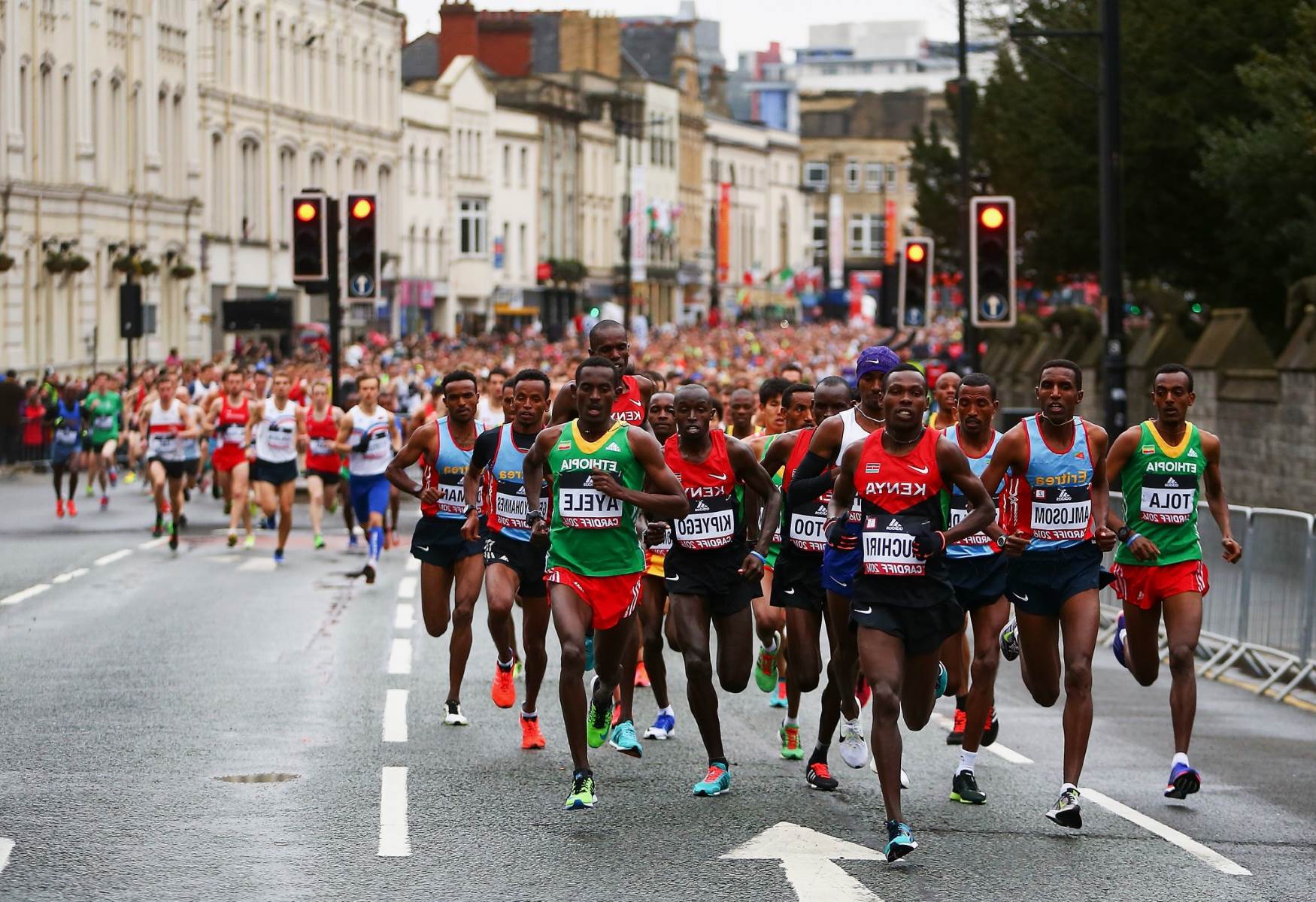Home>Health & Nutrition>Expert Advice For Running In Hot Weather


Health & Nutrition
Expert Advice For Running In Hot Weather
Published: February 22, 2024
Get expert advice on health and nutrition for running in hot weather. Stay safe and healthy with these essential tips.
(Many of the links in this article redirect to a specific reviewed product. Your purchase of these products through affiliate links helps to generate commission for Therunningadvisor.com, at no extra cost. Learn more)
Table of Contents
Importance of Hydration
Staying properly hydrated is absolutely crucial when it comes to running in hot weather. As the mercury rises, our bodies perspire more profusely, leading to increased fluid loss. This can result in dehydration, which not only hampers performance but also poses serious health risks.
When we run in hot weather, our bodies work overtime to regulate temperature, and this process demands a significant amount of water. Dehydration can lead to a range of issues, including muscle cramps, dizziness, heat exhaustion, and even heat stroke. These conditions not only hinder our running performance but can also be life-threatening if not addressed promptly.
To combat these risks, it's essential to prioritize hydration before, during, and after hot weather runs. Pre-hydration is key, so be sure to drink plenty of water in the hours leading up to your run. During the run, aim to consume fluids at regular intervals, even if you don't feel particularly thirsty. This proactive approach can help offset the fluid loss caused by sweating.
Electrolyte balance is equally important, as sweating not only depletes water but also essential minerals like sodium and potassium. Sports drinks or electrolyte-enhanced water can help replenish these vital nutrients, supporting proper muscle function and overall well-being.
In addition to water and electrolytes, it's important to be mindful of the signs of dehydration. Thirst, dry mouth, dark urine, and dizziness are all indicators that your body needs more fluids. Ignoring these signals can lead to a decline in performance and increase the risk of heat-related illnesses.
By prioritizing hydration and being proactive in maintaining fluid balance, runners can mitigate the challenges posed by hot weather. This not only supports optimal performance but also safeguards overall well-being, allowing for a safer and more enjoyable running experience.
Read more: Expert Advice On Splayed Feet And Running
Proper Clothing and Sun Protection
When it comes to running in hot weather, the right clothing and sun protection are essential for both performance and safety. The scorching sun and high temperatures can pose significant challenges, but with the proper gear and precautions, runners can minimize the impact of these environmental factors.
Lightweight and Breathable Apparel
Choosing the right clothing is paramount for hot weather running. Opt for lightweight, moisture-wicking fabrics that allow for optimal ventilation and sweat evaporation. Breathable materials such as technical polyester blends are ideal, as they help to keep the body cool and dry, preventing discomfort and chafing. Additionally, loose-fitting attire can facilitate airflow, further enhancing comfort during the run.
Sun Protection
Shielding the skin from the sun's harmful rays is crucial, especially during outdoor activities like running. Wearing a wide-brimmed hat or a cap with a visor can provide shade for the face and help prevent sunburn. Additionally, applying a sweat-resistant, broad-spectrum sunscreen with a high SPF rating to exposed skin areas is vital for protection against sun damage. Remember to reapply sunscreen as needed, particularly during longer runs.
Sunglasses
Investing in a good pair of UV-protective sunglasses is essential for eye safety during hot weather runs. Not only do they shield the eyes from harmful UV rays, but they also reduce glare, enhancing visibility and reducing eye strain. Look for sunglasses with polarized lenses for added protection and improved clarity.
Cooling Accessories
Incorporating cooling accessories can offer relief from the heat. Consider wearing a moisture-wicking headband or a cooling neck gaiter to help manage sweat and maintain a comfortable body temperature. Some runners also find value in using cooling arm sleeves to protect their arms from the sun while providing a cooling effect.
Timing and Shade
Strategic timing can also play a role in minimizing sun exposure. Whenever possible, plan runs during the cooler parts of the day, such as early morning or late evening. Seeking shaded routes or trails can also provide respite from direct sunlight, reducing the overall impact of heat and UV exposure.
By prioritizing proper clothing and sun protection, runners can mitigate the adverse effects of hot weather, allowing for a more comfortable and safer running experience. These measures not only support performance but also contribute to long-term skin health and overall well-being.
Adjusting Your Pace and Expectations
Running in hot weather necessitates a strategic approach to pace and expectations. The soaring temperatures and increased humidity levels can significantly impact performance and perceived exertion. Therefore, it's crucial for runners to adapt their pace and adjust their expectations to align with the demands of hot weather conditions.
Understanding the Impact of Heat
Hot weather places additional stress on the body, affecting heart rate, perceived effort, and overall performance. As the ambient temperature rises, the body expends more energy to regulate its internal temperature, leading to a higher heart rate at a given pace. This means that maintaining the same pace in hot weather can feel more challenging and may lead to premature fatigue.
Adjusting Pace for Optimal Performance
To optimize performance in hot weather, it's essential to adjust running pace accordingly. This may involve slowing down to accommodate the increased physiological strain imposed by the heat. Embracing a slower pace allows the body to better manage heat dissipation and maintain a sustainable level of effort. By doing so, runners can enhance their endurance and reduce the risk of overheating or dehydration during the run.
Managing Expectations
In addition to adjusting pace, managing expectations is paramount when running in hot weather. It's important to recognize that performance may differ from what is achievable in cooler conditions. Setting realistic goals and reframing expectations can alleviate unnecessary pressure and frustration. Embracing the notion that slower times and perceived effort are natural consequences of running in the heat can foster a more positive and adaptive mindset.
Listening to Your Body
While adjusting pace and expectations is crucial, it's equally important to listen to the body's cues during hot weather runs. Paying attention to how the body responds to the heat, humidity, and exertion levels can guide decision-making during the run. Being attuned to signs of overheating or excessive fatigue empowers runners to make informed adjustments to their pace and hydration strategy, ultimately promoting a safer and more enjoyable running experience.
Embracing Adaptability
Adaptability is key when it comes to running in hot weather. Flexibility in pace and expectations allows runners to navigate the challenges posed by high temperatures while maintaining a sense of control over their performance. Embracing the need for adjustments and being open to a different running experience fosters resilience and enhances the overall enjoyment of hot weather runs.
By understanding the impact of heat, adjusting pace, managing expectations, listening to the body, and embracing adaptability, runners can optimize their performance and well-being when tackling hot weather conditions. These proactive measures not only support physical resilience but also cultivate a positive and empowering mindset, ultimately enhancing the overall running experience.
Preparing for Hot Weather Running
Preparing for hot weather running involves a comprehensive approach that encompasses physical readiness, mental preparation, and strategic planning. As the temperature climbs, runners must proactively equip themselves to tackle the unique challenges posed by hot weather conditions. By implementing effective preparation strategies, runners can optimize their performance, mitigate potential risks, and ensure a more enjoyable and rewarding running experience.
Acclimatization and Training
Acclimatization plays a pivotal role in preparing for hot weather running. Gradually exposing the body to higher temperatures allows it to adapt and become more efficient at managing heat stress. This process involves incorporating heat-acclimatization runs into training routines, progressively increasing exposure to warm conditions. By doing so, runners can enhance their heat tolerance, improve sweat rate, and optimize thermoregulatory mechanisms, all of which are essential for performing well in hot weather.
Hydration and Nutrition
Prioritizing hydration and nutrition is fundamental when preparing for hot weather running. Maintaining optimal hydration levels by consistently consuming adequate fluids in the days leading up to a hot weather run is crucial. Additionally, incorporating electrolyte-rich foods and beverages into the diet can support proper fluid balance and aid in combating the effects of increased sweat loss. Ensuring that the body is adequately fueled with a balance of carbohydrates, proteins, and healthy fats is equally important for sustaining energy levels during hot weather runs.
Gear and Equipment
Selecting the right gear and equipment is essential for hot weather running preparation. This includes choosing moisture-wicking apparel that facilitates sweat evaporation and promotes ventilation. Lightweight, breathable running shoes with ample airflow can also contribute to overall comfort and foot health. Additionally, investing in accessories such as a hydration belt or handheld water bottle allows for convenient access to fluids during the run, supporting continuous hydration without disruptions.
Read more: The Secrets Of A Running Expert’s Endurance
Route Planning and Timing
Strategic route planning and timing are key considerations when preparing for hot weather running. Identifying shaded paths, trails with access to water fountains, or routes with cooling elements such as coastal breezes can help mitigate the impact of intense heat. Furthermore, scheduling runs during the cooler parts of the day, such as early morning or late evening, can minimize exposure to peak temperatures, enhancing overall comfort and safety.
Mental Conditioning
Mental preparation is an often overlooked yet critical aspect of preparing for hot weather running. Developing a positive and resilient mindset, embracing adaptability, and acknowledging the inherent challenges of running in the heat can significantly influence the overall running experience. Implementing mental strategies such as visualization, positive self-talk, and mindfulness techniques can bolster mental fortitude and enhance the ability to cope with the demands of hot weather conditions.
By integrating acclimatization and training, prioritizing hydration and nutrition, selecting appropriate gear, planning routes and timing, and fostering mental resilience, runners can effectively prepare for hot weather running. This holistic approach not only optimizes physical readiness but also cultivates a proactive and empowered mindset, ultimately contributing to a safer, more enjoyable, and rewarding running experience in hot weather.
Post-Run Recovery and Hydration
After completing a run in hot weather, prioritizing post-run recovery and hydration is paramount for supporting the body's recovery process and replenishing vital fluids and nutrients. The combination of high temperatures and physical exertion during hot weather runs can significantly impact the body, making proper recovery and hydration practices essential for overall well-being and performance.
Rehydration and Electrolyte Replacement
Following a hot weather run, rehydration takes precedence to offset the fluid loss incurred through sweating. Replenishing lost fluids helps restore optimal hydration levels, supporting various physiological functions and promoting overall recovery. It's crucial to consume fluids promptly after the run, focusing on both water and electrolyte-rich beverages to address the body's comprehensive hydration needs. Electrolytes, including sodium, potassium, and magnesium, play a pivotal role in maintaining fluid balance and supporting muscle function. Therefore, incorporating electrolyte-enhanced drinks or consuming electrolyte-rich foods can aid in replenishing these essential minerals, facilitating efficient recovery and minimizing the risk of dehydration-related complications.
Read more: Expert Tips For Running A Sub 20 5k
Cooling and Restorative Measures
Implementing cooling and restorative measures post-run can aid in reducing core body temperature and alleviating muscle fatigue. Utilizing cooling techniques such as cold compresses, ice baths, or cooling towels can help lower body temperature and mitigate the effects of heat stress. Additionally, engaging in gentle stretching and foam rolling can promote muscle relaxation, enhance flexibility, and alleviate post-run stiffness. These practices contribute to overall recovery, supporting the body's adaptation to the demands of hot weather running and reducing the likelihood of muscle soreness and fatigue.
Nutrient Replenishment and Refueling
Replenishing essential nutrients and refueling the body post-run is vital for supporting recovery and sustaining energy levels. Consuming a balanced post-run meal or snack that includes a combination of carbohydrates, proteins, and healthy fats can aid in replenishing glycogen stores, promoting muscle repair, and facilitating overall recovery. Nutrient-dense foods such as lean proteins, whole grains, fruits, and vegetables offer valuable vitamins, minerals, and antioxidants, supporting the body's recovery process and bolstering immune function. Prioritizing nutrient replenishment through wholesome, well-rounded post-run nutrition is integral for optimizing recovery and preparing the body for future running endeavors.
Rest and Rejuvenation
Allowing for adequate rest and rejuvenation post-run is essential for the body to recuperate and adapt to the physiological stressors induced by hot weather running. Embracing restorative practices such as quality sleep, relaxation techniques, and mindful breathing can promote physical and mental rejuvenation, fostering a holistic approach to post-run recovery. Prioritizing sufficient rest and recovery time allows the body to repair and rebuild, enhancing resilience and readiness for subsequent training sessions in hot weather conditions.
By emphasizing rehydration and electrolyte replacement, implementing cooling and restorative measures, prioritizing nutrient replenishment and refueling, and embracing rest and rejuvenation, runners can optimize their post-run recovery and hydration in hot weather. These proactive practices not only support physical recovery but also contribute to overall well-being, ensuring a more sustainable and rewarding running experience in challenging environmental conditions.











